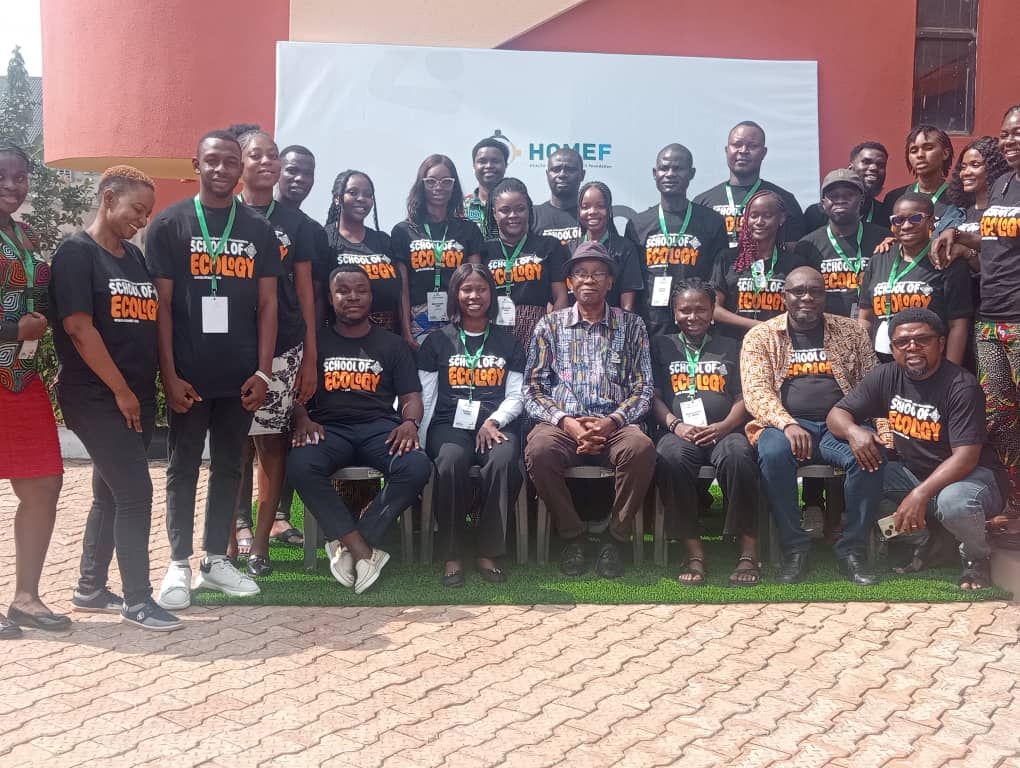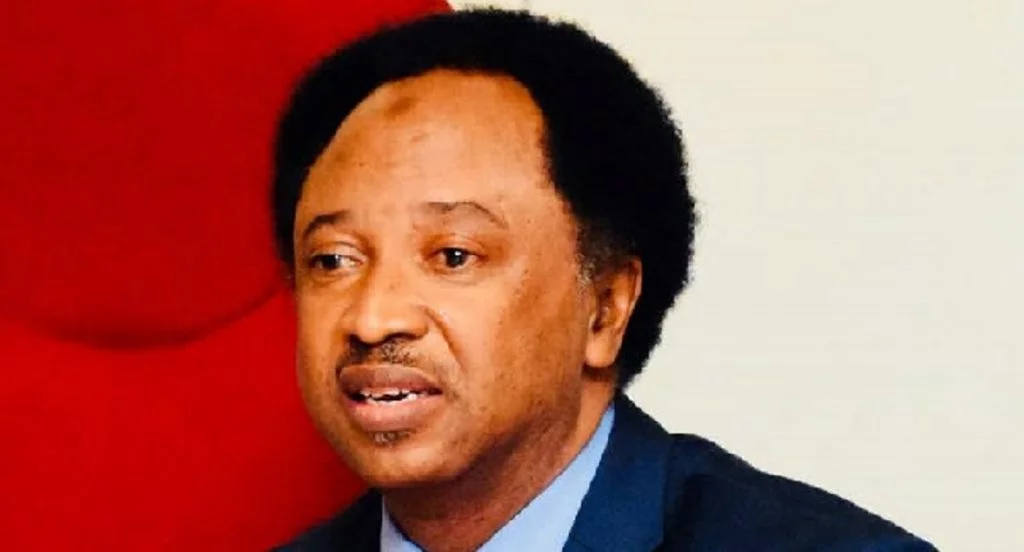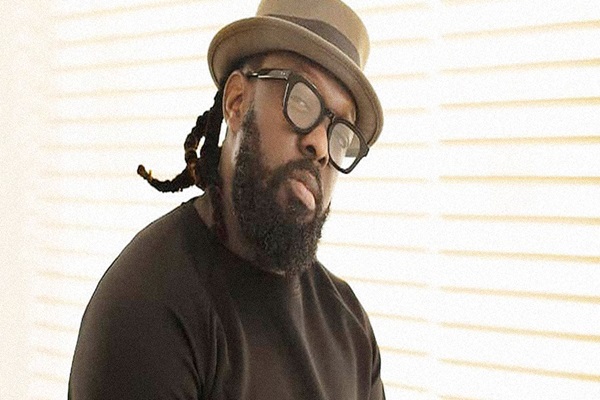News
HOMEF’s School of Ecology Empowers Young Activists with Environmental Knowledge

The Executive Director of the Health of Mother Earth Foundation (HOMEF), Dr. Nnimmo Bassey, expressed his organization’s commitment to nurturing young activists through its School of Ecology.
The initiative aims to equip these activists with a deep understanding of the environmental challenges facing society today.
Speaking at the closing session of the March series of the School of Ecology, themed “Ecology Justice and Resilience,” which took place from March 24 to 28 in Benin, Bassey emphasized the importance of educating young people about environmental issues.
“The idea behind the School of Ecology is to cultivate a group of activists who possess real knowledge about the challenges confronting us and our environment.
“We are dedicating time to teach not only the issues but also the underlying reasons for these challenges,” he stated.
Bassey highlighted the significance of understanding the root causes of environmental crises, asserting that this knowledge empowers individuals to address the manifestations of these problems effectively.



“In this series, we focused on building resilience, enhancing community capacity, and fostering the strength needed to tackle these issues,” he added.
During the training, Bassey introduced the concept of ‘Eti-Uwem,’ an Ibio phrase meaning “good life,” which advocates for a harmonious relationship among individuals and with the environment.
“Eti-Uwem is a concept we have been sharing for some time, and we want to continue promoting it. When people embrace this idea, it positively influences their relationship with the environment,” he explained.
Babawale Obayanju, who taught the sub-topic “Uniting Our Common Struggle,” emphasized the necessity of collaboration in activism.
READ ALSO: HOMEF Organizes Reading Series, Wants Nigerians Pick Ideas From Books To Better The Environment
“We can’t live in isolation; no man is an island. In the face of oppression, working solo increases the risk of being overwhelmed. We must unite in our common struggle, as climate justice is intertwined with social justice,” he stated.

Cadmus Atake-Enade, who discussed “Radical Socio-Economic Transformation through Culture,” urged stakeholders to collaborate in promoting policies that empower cultural industries while protecting natural resources.
“By doing so, we ensure that economic transformation is not only radical but also deeply rooted in the values, identity, heritage, and ecological well-being of the communities it aims to uplift,” he said.
Participants expressed their gratitude for the training, which spanned five days.
READ ALSO: NNPCL-Dangote Refineries Rift: HOMEF Demands Transparency, Investigation
Mbalisi Onyeka Festus, a Professor of Environmental Education at the University of Port Harcourt, remarked, “I have learned valuable insights that will contribute to environmental justice.”
Praise Omu, a lecturer in Environmental Management at Niger Delta University, Wilberforce Island, Amassoma, Bayelsa State noted, “We were inspired to take informed actions and recognize that everything on earth, both living and non-living, has rights that deserve respect.”
Evelyn Eyo from Uyo, Akwa Ibom State, thanked HOMEF for the enlightening training and pledged to share her newfound knowledge with others.
“The school has opened my mind to many misconceptions. I will return to my organization and conduct programme to educate the younger generation about the impacts of environmental pollution,” she promised.
The five-day training attracted participants from northern Nigeria and the South-South geopolitical zone, culminating in the issuance of certificates to all attendees.
News
Trump’s Airstrikes: Halt Military Cooperation With US Immediately – Sheikh Gumi Tells Tinubu Govt

Islamic cleric, Sheikh Ahmad Gumi has called on the Federal Government to immediately halt all military cooperation with the United States following reported US airstrikes.
Gumi warned that American involvement could worsen Nigeria’s security challenges and undermine national sovereignty.
Gumi made the call in a statement posted on his Facebook page on Friday.
He said while Islam permits the fight against terrorism, such actions should only be carried out by what he described as “clean hands,” arguing that the United States lacks the moral authority to lead such efforts because of its global military record.
READ ALSO:US Dept Of War Shares Video Of Air Strikes In Nigeria
According to the cleric, Nigeria made a mistake by allowing foreign powers to play a role in its counterterrorism operations, insisting that “terrorists do not truly fight terrorists” and that such interventions often result in civilian casualties and hidden political motives.
Gumi warned that allowing Nigeria to become a theatre of war would attract anti-US forces into the country, further destabilising it.
He also cautioned that US involvement, particularly under claims of protecting Christians, could polarise the country along religious lines.
READ ALSO:Trump To Attend FIFA World Cup Finals Draw On Friday
The cleric further argued that airstrikes alone cannot defeat terrorism, stressing that effective counterterrorism requires strong ground operations, which he said Nigeria has enough personnel to carry out if properly organised.
“This is the mistake Nigeria has made. Terrorists don’t fight terrorists in truth; they may only kill innocent people and have ulterior motives behind the drama of fighting ‘terror’.
“As a principle, no nation should allow its land to be a theater of war. And no nation should allow its neighbors to be their enemies.
“If Nigeria wants military assistance, China, Turkey, and Pakistan can do the job effectively,” part of his statement reads.
News
Shehu Sani Reacts To Trump’s Military Strikes In Nigeria

Former lawmaker, senator Shehu Sani, has reacted to reports of United States military strikes on terrorist targets in Nigeria’s North-West, saying foreign powers cannot permanently handle the country’s security challenges.
Sani made the remarks on Friday via his X handle while responding to a post by the United States Africa Command, AFRICOM, which indicated that the strikes were carried out in coordination with Nigerian authorities.
According to him, if the reported strikes were indeed a joint operation with Nigerian security agencies, then such action was justifiable, given the threat posed by terrorist groups in the region.
READ ALSO:US Dept Of War Shares Video Of Air Strikes In Nigeria
He described terrorists operating in parts of northern Nigeria as “cancerous cells,” stressing that they survive through violence and should be confronted decisively.
Sani also dismissed narratives suggesting that terrorist attacks target only one religious group, describing such claims as false and misleading.
He said: “If actually, the military strikes against the terrorists targets in the North Western part of Nigeria were a joint operation with the ‘Nigerian Authorities’ as posted by the US AFRICOM on their verified X handle, then it’s a conscionable action.
READ ALSO:JUST IN: US Forces Bomb Terrorists Camps In Nigeria
“Terrorists have become cancerous cells in our part of the country.They live by the sword.The narrative that the evil terrorists only targets one faith, remains absolutely false and misleading.
“Again, the ultimate security and peace in our country lies with ourselves and not with the US or any foreign power. They can complimentarily or unilaterally strike, but they can’t eternally fight our battles.”
News
UKWU! Timaya Falls On Stage While Trying To Lift Plus-sized Woman During Performance [VIDEO]

Nigerian singer, Timaya fell on stage while trying to lift a plus-sized lady during performance.
The incident occurred during his ‘Ukwu’ performance at the Gbaramatu Christmas Carnival in Delta State.
READ ALSO:Saboteurs Against Presidential Amnesty Reforms – General Ndiomu
Timaya in a now trending video on social media collapsed after the plus-sized woman jumped on him midday into his performance.
The singer later got up and continued his performance amid cheers from the crowd.
Watch video here
https://x.com/hypetribeng/status/2004263337572684157?s=20

 News4 days ago
News4 days agoPHOTOS: New Era In Furupagha-Ebijaw As Okpururu 1 Receives Staff Of Office

 News3 days ago
News3 days agoUBTH CMD Marks 120 Days In Office, Expresses Commitment To Providing Conducive Working Environment

 News3 days ago
News3 days agoOPINION: Gumi And His Terrorists

 News3 days ago
News3 days agoFIRS Confirms NIN As Tax ID

 News3 days ago
News3 days agoFG Declares Public Holidays For Christmas, New Year Celebrations

 Metro3 days ago
Metro3 days agoFintiri Pardons Man Sentenced To Death For ‘Killing Herdsman In Self-defence’, Others

 News3 days ago
News3 days agoOPINION: Christmas And A Motherless Child

 News3 days ago
News3 days agoOPINION: My Man Of The Season

 News2 days ago
News2 days agoJUST IN: Kano Lawmaker, Sarki Aliyu Daneji, Dies Hours After Colleague’s Passing

 News3 days ago
News3 days agoKWAM 1 Withdraws From Awujale Race, Ends Court Challenge






























